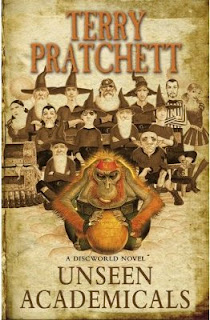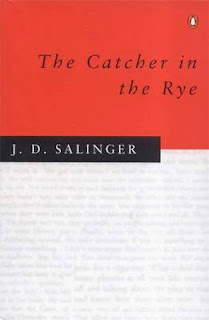Life in Remainville: Episode 3, A New Hope
So it turns out the method of counting window posters is scientific, with Jeff Smith crushing all before him:
Far from being a marginal, Withington must now be one of the safest seats in the country. The Lib Dems remain in second place but will surely now turn their attention to more winnable targets. The Greens' collapse mirrors their poor performance nationally, while the Tories have benefitted only marginally from the disappearance of UKIP.
What a turnaround we've seen since the start of the campaign, and even the local elections, when it seemed like Big Andy would be the only Labour politician left standing by June. Perhaps in fact it was those local elections that made all the difference. As Sr. Spielbergo noted on that day, the poor result for Labour could have had a positive psychological effect by bringing home the scale of the defeat they faced if they didn't start pulling together, while conversely the Tories started to believe in the inevitability of their landslide. The manifestos that emerged shortly afterwards reflected this: a well-crafted effort from Labour that was both bold and could be embraced by the whole party, while the Tory manifesto was filled with bizarre hobby horses and dripping with hubris.
The local elections also severely hobbled the Lib Dems, who threw away the momentum they had carefully build up over the course of many by-elections with a disastrous start to their campaign, and actually managed to lose seats on May 4th. By the time Labour had successfully established the election battleground on the economic axis, there was no way in for a Brexit-oriented interloper. The transformation is most obvious in next door Gorton, which the Lib Dems had a good chance of winning in the original by-election but in the general election faded back into fourth. The final result nationally was actually not too bad for them, and perhaps their time will come when Brexit actually happens, but for now it's all too soon.
When I've looked back at my 2015 piece on Corbyn written just before he became leader, I've mostly been struck by how optimistic I was, even so soon after the terrible and unexpected disaster of the general election. That optimism has, to put it mildly, been tested by the events since, and looking for hopeful signs was a forlorn exercise right up until 11 May when the manifesto was leaked. By 26 May, YouGov was indicating a hung parliament. Now I'm struck by how close we've got to scenario #1 in such an astonishingly short period of time. Perhaps that long-hoped-for, never-to-arrive Progressive Moment brought on by the financial crisis is finally upon us.
It's also interesting how closely the general election has mirrored Corbyn's first leadership campaign. To political insiders too familiar with his long history as a fringe politician and champion of lost causes, he was a no-hoper. But to the ordinary voter, he's a fresh face with a sensible and inspiring platform. And all the feared attacks from the right wing press reminding us of the skeletons in his closet really did just bounce off him. Perhaps finally their power is broken.
(It's remarkable too how Scotland has yet again played a decisive role in proceedings: this time through electing enough new Tory MPs to keep them in government.)
Before getting carried away, I remain thoroughly suspicious about Labour's approach to Brexit in general (reaffirmed by John McDonnell yesterday), and angry in particular at their manifesto commitment to end free movement, but I've never been under any illusion that my views are popular and perhaps Labour's cunning fudge of the issue will continue to be acceptable to both pro-European voters and a sizeable chunk of former UKippers for as long as they need it to be. One thing is for sure, with a hung parliament the prospects for a non-catastrophic Brexit now look rosier that at any time since the referendum.
That is a concern for another day anyway. For now the most important thing for us humble voters is to sit back and enjoy the beautiful and unexpected spectacle of Tory disarray. A toast to optimism, and a mission accomplished.
Party
|
Votes
|
%
|
+/- %
|
|
Jeff Smith
|
Labour
|
38,424
|
71.7
|
+18.0
|
John Leech
|
Liberal Democrat
|
8,549
|
15.9
|
-8.0
|
Sarah Heald
|
Conservative
|
5,530
|
10.3
|
+0.6
|
Laura Bannister
|
Green
|
865
|
1.6
|
-6.5
|
Sally Carr
|
Women’s Equality
|
234
|
0.4
|
Far from being a marginal, Withington must now be one of the safest seats in the country. The Lib Dems remain in second place but will surely now turn their attention to more winnable targets. The Greens' collapse mirrors their poor performance nationally, while the Tories have benefitted only marginally from the disappearance of UKIP.
What a turnaround we've seen since the start of the campaign, and even the local elections, when it seemed like Big Andy would be the only Labour politician left standing by June. Perhaps in fact it was those local elections that made all the difference. As Sr. Spielbergo noted on that day, the poor result for Labour could have had a positive psychological effect by bringing home the scale of the defeat they faced if they didn't start pulling together, while conversely the Tories started to believe in the inevitability of their landslide. The manifestos that emerged shortly afterwards reflected this: a well-crafted effort from Labour that was both bold and could be embraced by the whole party, while the Tory manifesto was filled with bizarre hobby horses and dripping with hubris.
The local elections also severely hobbled the Lib Dems, who threw away the momentum they had carefully build up over the course of many by-elections with a disastrous start to their campaign, and actually managed to lose seats on May 4th. By the time Labour had successfully established the election battleground on the economic axis, there was no way in for a Brexit-oriented interloper. The transformation is most obvious in next door Gorton, which the Lib Dems had a good chance of winning in the original by-election but in the general election faded back into fourth. The final result nationally was actually not too bad for them, and perhaps their time will come when Brexit actually happens, but for now it's all too soon.
When I've looked back at my 2015 piece on Corbyn written just before he became leader, I've mostly been struck by how optimistic I was, even so soon after the terrible and unexpected disaster of the general election. That optimism has, to put it mildly, been tested by the events since, and looking for hopeful signs was a forlorn exercise right up until 11 May when the manifesto was leaked. By 26 May, YouGov was indicating a hung parliament. Now I'm struck by how close we've got to scenario #1 in such an astonishingly short period of time. Perhaps that long-hoped-for, never-to-arrive Progressive Moment brought on by the financial crisis is finally upon us.
It's also interesting how closely the general election has mirrored Corbyn's first leadership campaign. To political insiders too familiar with his long history as a fringe politician and champion of lost causes, he was a no-hoper. But to the ordinary voter, he's a fresh face with a sensible and inspiring platform. And all the feared attacks from the right wing press reminding us of the skeletons in his closet really did just bounce off him. Perhaps finally their power is broken.
(It's remarkable too how Scotland has yet again played a decisive role in proceedings: this time through electing enough new Tory MPs to keep them in government.)
Before getting carried away, I remain thoroughly suspicious about Labour's approach to Brexit in general (reaffirmed by John McDonnell yesterday), and angry in particular at their manifesto commitment to end free movement, but I've never been under any illusion that my views are popular and perhaps Labour's cunning fudge of the issue will continue to be acceptable to both pro-European voters and a sizeable chunk of former UKippers for as long as they need it to be. One thing is for sure, with a hung parliament the prospects for a non-catastrophic Brexit now look rosier that at any time since the referendum.
That is a concern for another day anyway. For now the most important thing for us humble voters is to sit back and enjoy the beautiful and unexpected spectacle of Tory disarray. A toast to optimism, and a mission accomplished.



Comments
Post a Comment